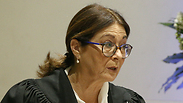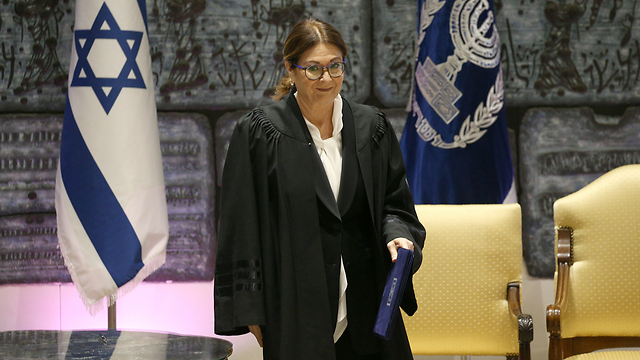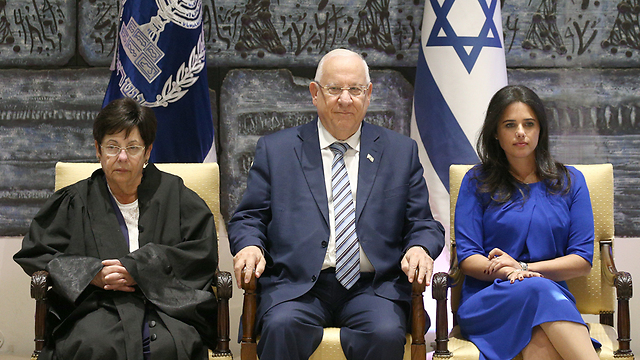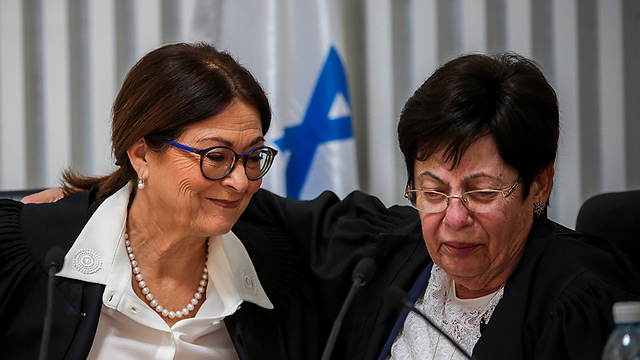
The nature of the Israeli judicial system and the ongoing tension between it and the executive branch were at the center of the swearing-in ceremony of Justice Esther Hayut, 64, as president of the Supreme Court.
"I pray that we will be able to preserve the existing structure so that it will not crack and will not be harmed," Hayut said after being sworn in, referring to the current balance between branches. "This prayer for preserving what we have today is perhaps more necessary than ever because of worrying attempts to undermine the status and independence of the judiciary branch."
In addition to Hayut, the ceremony was attended by former Supreme Court presidents, current Supreme Court justices, Prime Minister Benjamin Netanyahu, President Reuven Rivlin, Knesset Speaker Yuli Edelstein, Justice Minister Ayelet Shaked, outgoing Supreme Court President Miriam Naor.
"Israel can be proud of the independence of its judiciary, which fears nothing but the law," Naor said in a tearful farewell speech. "Judicial independence, however, should not be taken for granted. We must protect it."
Shaked, who butted heads with Naor several times in the past, told the outgoing court president that she, in spite of everything, had much respect for her and regarded her as "an old friend."
"It’s no secret that we’ve had quite a few disagreements," she said. "But we knew how to overcome them in a productive and respectful way for the sake of the people and the State of Israel."
"In recent decades, and even more so since the constitutional revolution, the court has unfortunately turned something perceived as a party to public disputes. At the same time, and almost inevitably, there was a significant drop in the public's trust in this institution," Shaked added, stressing she was confident in Hayut ability to "set boundaries" to the court and lead it to a "better place."
"The disagreements of the past few months have tested us," Rivlin said in his speech at the swearing in ceremony. "You have before you, a rare opportunity to work together to regulate the relations between the authorities and to anchor them in legislation.
"I truly believe that it is in your power to bring about proper regulation by an agreement reached. It is the only way in which we can serve the public—by strengthening their trust in the institutions; strengthening governance and the judicial system."
A daughter of Holocaust survivors, Hayut began her legal career in 1977. She served as a Tel Aviv judge for over 13 years before being promoted to chief justice in 2003.
The Judicial Selection Committee officially chose Hayut as the chief justice after weeks of uncertainty. About two months ago, Justice Minister Ayelet Shaked demanded that a discussion be held in the Knesset on the 'seniority system,' according to which the most senior judge was elected Supreme Court chief justice.
The discussion ended without yet coming to an agreement on the matter, with Shaked notingt that to her dismay, none of the Supreme Court judges, who are committed to the seniority system, chose to run against Hayut for the position.



















